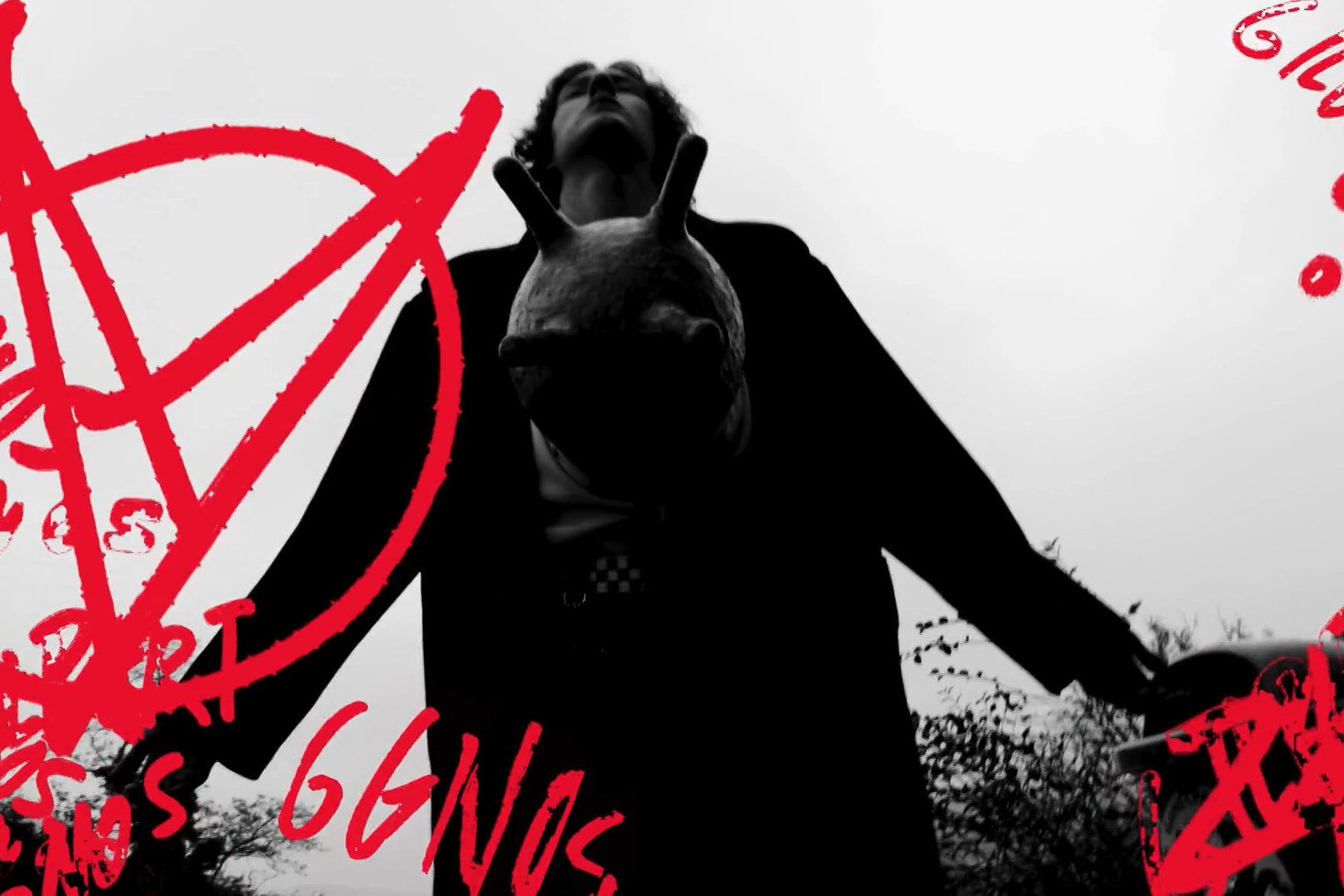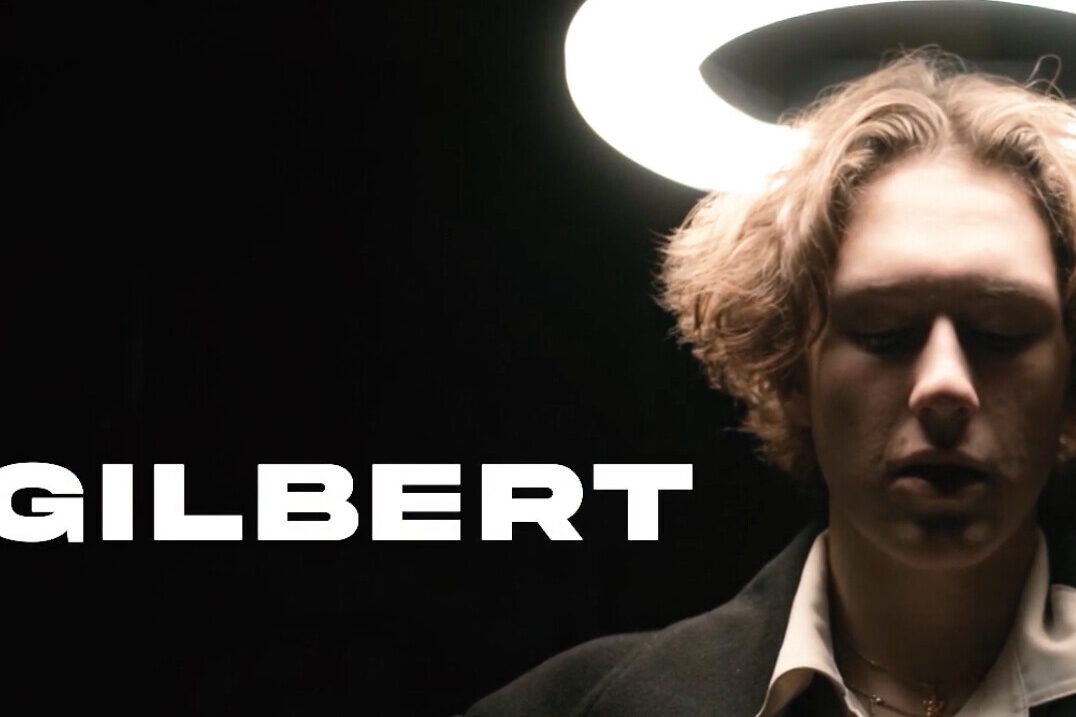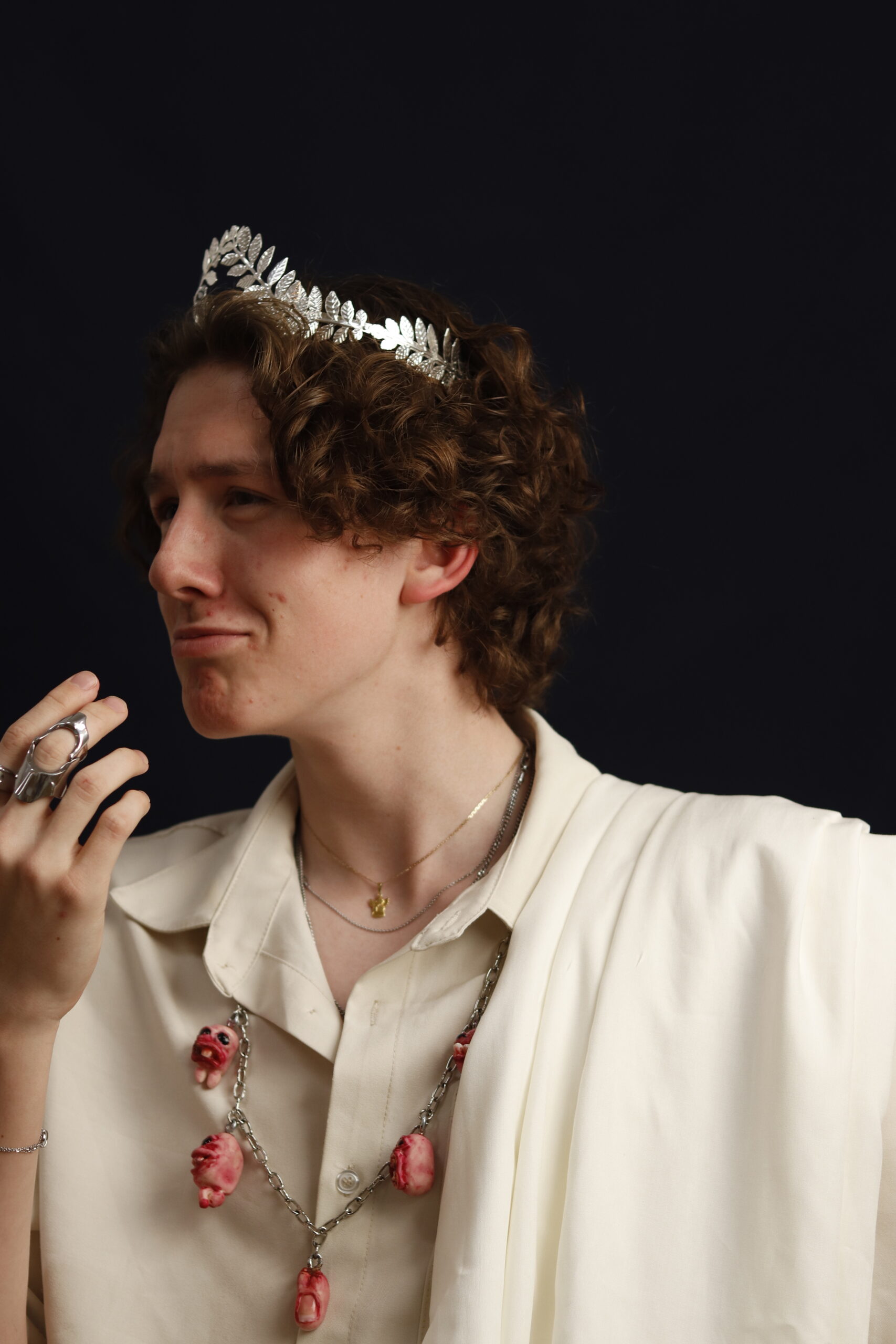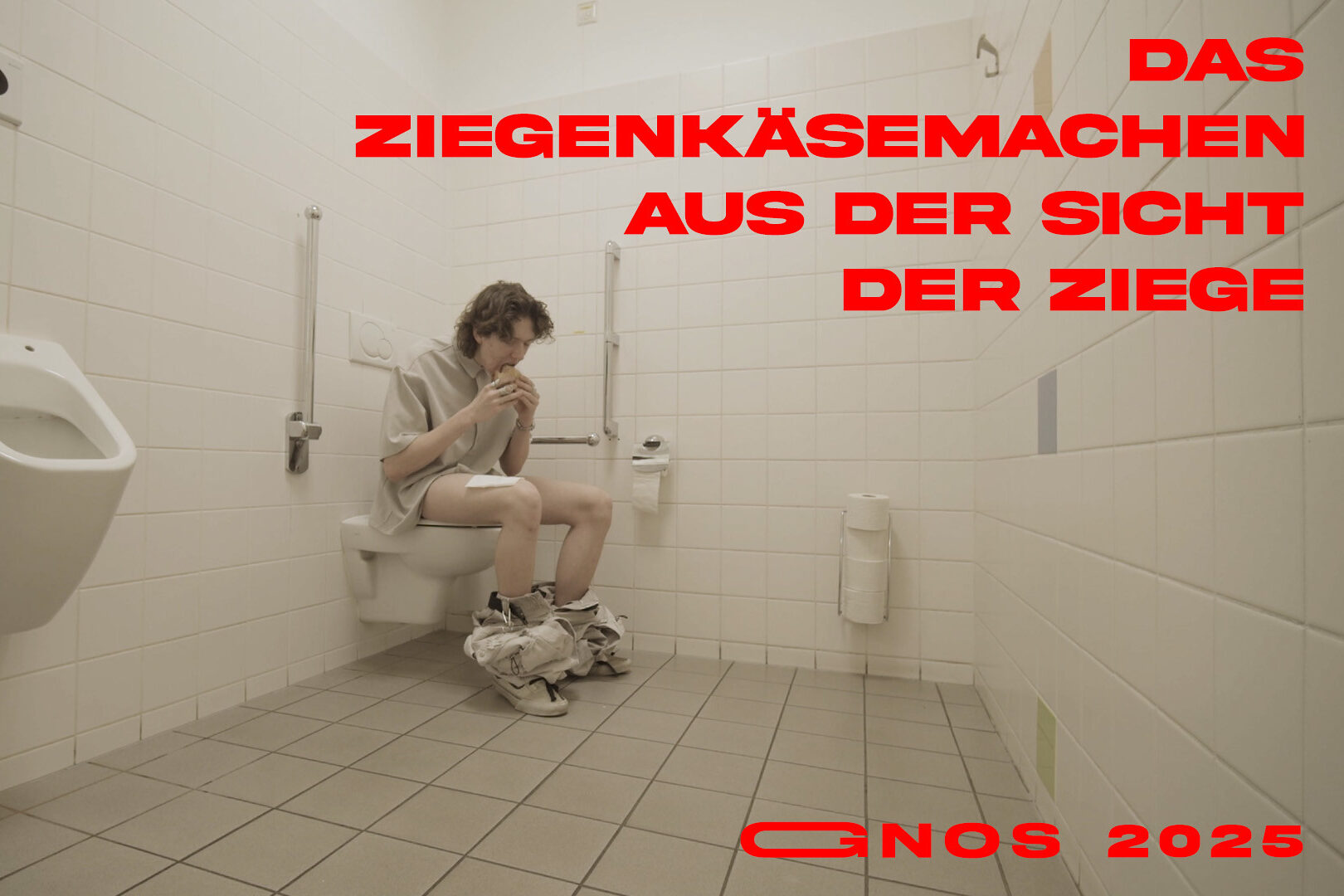„Das Ziegenkäsemachen aus der Sicht der Ziege“ (Goat Cheese Making from the Perspective of the Goat) reveals the digital overload, the dependency on algorithms, and the longing for liberation. It is a film that understands art as a radical scream against mindless, endless media consumption and indifference.
The u19 – create your world category of the Prix Ars Electronica offers young talents a platform to showcase their creative ideas and projects. These works focus on themes that are particularly relevant to the younger generation and shape their everyday lives. This year Nico Pflügler and Aleksa Jović were awarded the Golden Nica for their work „Das Ziegenkäsemachen aus der Sicht der Ziege“. The project critically explores digital overstimulation and the influence of algorithms on consciousness.
A film about goat cheese making from the goat’s perspective sounds unusual – yet it reflects the absurdities and superficialities that flood social media daily. We spoke to 19-year-old director and Golden Nica winner Nico Pflügler to find out more about his thought-provoking film.
Your film deals with the overwhelming content we see online in a very unusual way. What inspired you to tackle this particular topic?
Nico Pflügler: In summer 2024, something dawned on me that I already knew: I was lost, chronically online in a digital whirlpool, daily immersed in the boiling sewage of the internet. A triple front flip with a twist into a toxic swirl of stimuli, trash, violence, and occasional sparkle. The algorithm — my parasitic twin — fed me perfectly, knowing me better than my parents. Slop at its finest, tailor-made, served on a shiny platter of glass and greed. While I drifted along, a cosmic twist connected me to another person, my partner. Through her, I was finally able to break free from the painful parasitic grip of the algorithm. My film is a reflection on the Armageddon of consciousness — a wound that refuses to heal.
“We scroll through misery, death, lies, and dance, as if all were equally valuable: terror, children, hate, neo-Nazis, pornography, advertising — all in the same breath, packaged, soundtracked, and clicked.“
The film does not seek to explain. It aims to decompose. This consumption — mindless, unreflective, endless — is a disease. Art must not be a sedating noise. No content, no comfort, no snack. Art must disturb. ART IS A SCREAM. Not a product.
How did the creative process evolve — from the first idea to the final realization? Were there moments when you doubted the concept?
Nico Pflügler: I would lie if I said the idea was meticulously constructed. At first, there was the title. One summer morning, ”Das Ziegenkäsemachen aus der Sicht der Ziege” came into my head like a vision, nested there, laid eggs. From these eggs hatched, slowly incubated by my enormous hatred for overly generic content, impulses, images, and colors, to which I occasionally gave free rein in my sketchbook at the time. With input from my best friend Aleksa Jović and my mentor Robert Hinterleitner, my fragmented, almost cubist multiple perspectives gradually took shape and could be captured with a camera. At some point, my mother also offered to help me build the udder, for which I am still very grateful.

Humor, absurdity, media critique — your film balances many genres and moods. What was especially important to you in the artistic execution?
Nico Pflügler: Many things must be capitalized in the context of my film. But the most important is probably that the audience senses how frustrated, how full of hate we are. How much Gilbert Gnos longs to no longer see thirteen thousand ads a day. How much we wish for the end of the internet and especially social media. I think I achieved the desired effect, even though many people refuse to give my film a chance, dismissing it as “just another student art film” because it defies easy interpretation. Also, I wanted to film scenes no one has seen before. Like an udder in the tram, for example.
What reaction do you hope for from the audience after watching your film?
“I don’t care if you throw tomatoes at me or chase me out of the country with torches and pitchforks. The only thing I want is for you to think and focus for at least a minute on what the film wants to say.“
Nico Pflügler: I don’t want the film to be consumed — I want it to play on your retinas while your brain actively works to figure out what you’re seeing. That you process, engage, or at least don’t use your phone while watching. It is important to me to show that especially film as a medium today is too often perceived as cheap entertainment and no longer as an art form. We have to scream to be heard.

At only 19 years old, you are being awarded the Golden Nica — one of the most prestigious media art prizes worldwide. What does this recognition mean to you personally, and what can we look forward to in the future?
Nico Pflügler: The Nica was admittedly very unexpected. When I received the news, I was with my partner deep in the French-speaking Swiss region, specifically in Gruyères at the fantastic H.R. Giger Museum. My jaw literally dropped — I had to pick it up from the biomechanical tiles. Aleksa and I naturally feel strengthened in our work by the Nica. We know we are on the trail of something bigger — our work has quality. And we will not stop. There are more bizarre works in progress than we can count. And if all goes well, Gilbert Gnos and co. will soon be seen again on the big screen.
The project „Das Ziegenkäsemachen aus der Sicht der Ziege“ will be on display at the Ars Electronica Festival in Linz from September 3 to 7, 2025. Current information about the project and other program highlights can be found on the festival website.

Nico Pflügler
Born in Gallneukirchen in 2006.
HBLA for Artistic Design, Linz
Screenwriter, actor, artist (graphic design, sculpture -> Thomas Project)
